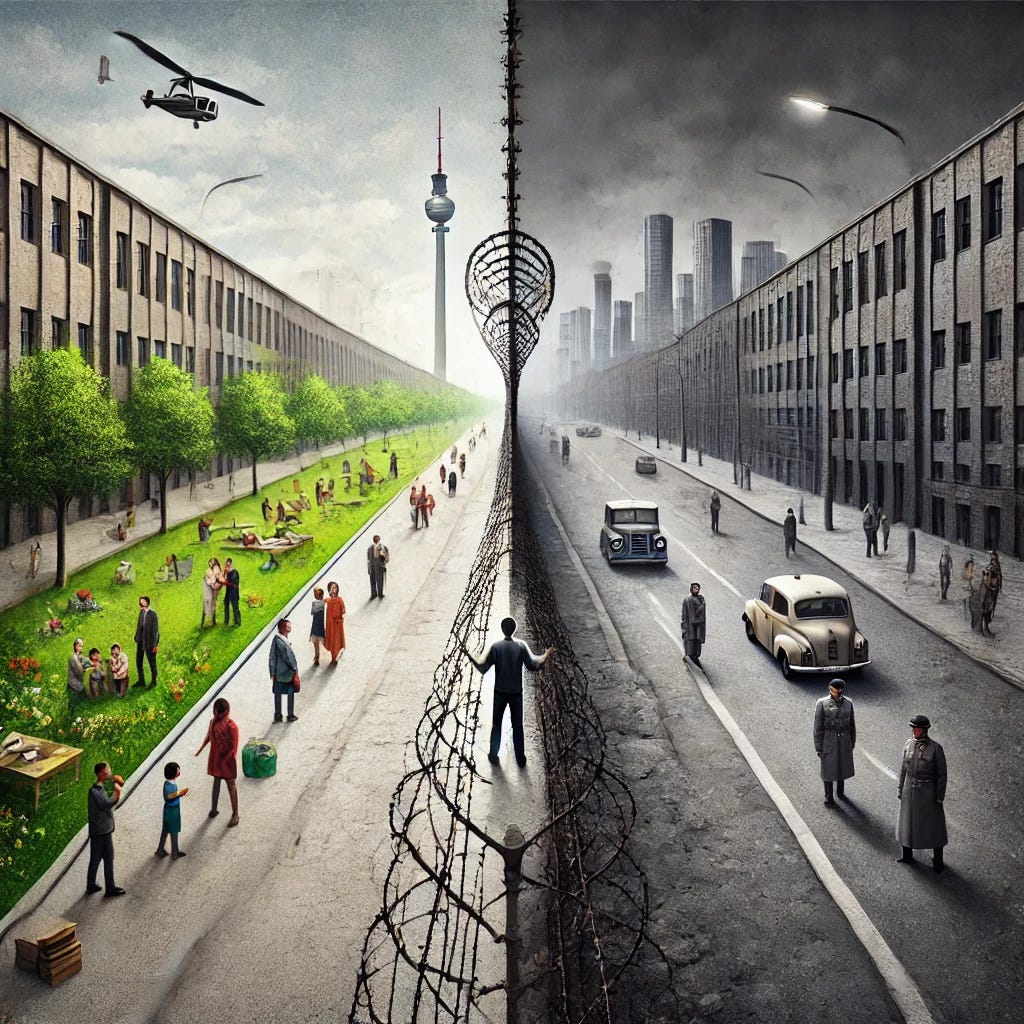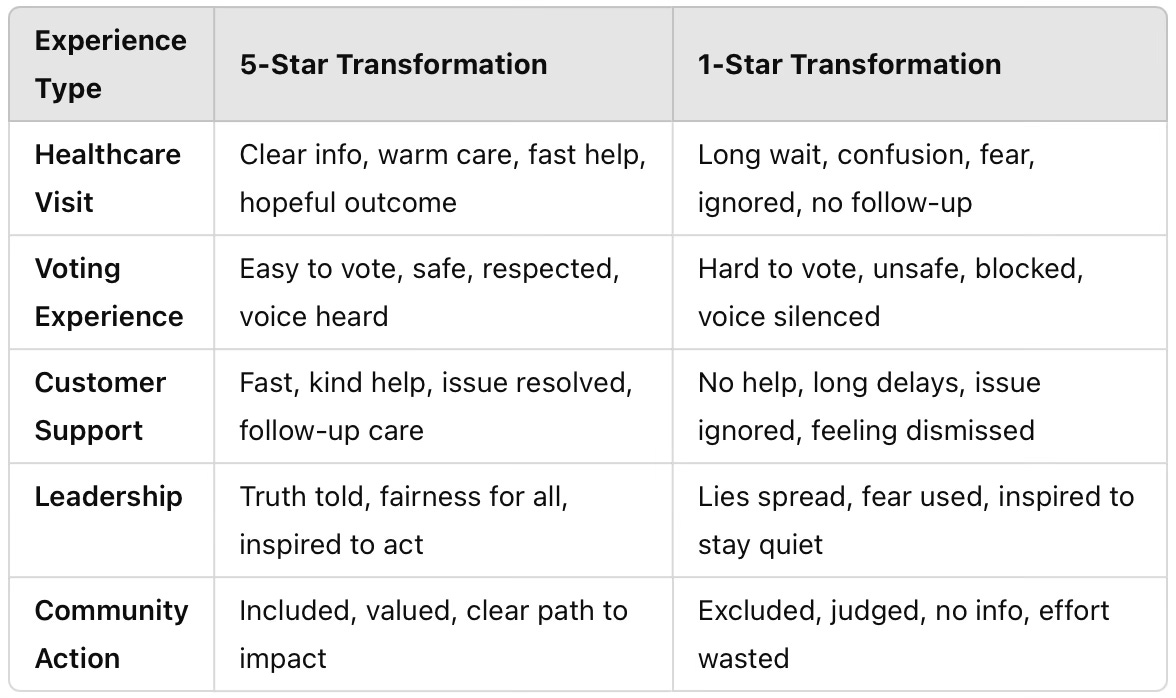The Rapid Erosion of Trust
TXH Series Hub: THX Pulse - Systems, Emotions & the Urgency of Now
How Power Games Are Breaking Our Social Contract
Something’s been bothering me lately—and it goes beyond politics. It’s about trust, fairness, and the kind of world we want to live in.
We’ve seen stories about leaders using secret apps to plan war. We’ve seen powerful people ban law firms, tech companies, and reporters from government buildings—just because they said something critical. Then suddenly, the bans disappear, but only after money changes hands or promises are made.
These aren’t random events. They’re signs of something bigger: the slow erosion of the social contract—the unwritten agreement that says we all follow the same rules, and that leaders serve the people—not themselves.
When that contract breaks, we all feel it. And it shows up in ways that affect our daily lives.

The 12 Utilities: What People Value Most
To help companies understand what people truly value, I developed the 12 Utilities. These are 12 categories of value that, when delivered, create loyalty, admiration, and trust. They help people feel they are seen, respected, and valued.
When these utilities are promised but not delivered—especially by leaders or institutions—the opposite happens. Trust breaks down. People disconnect. Hope fades.
Here’s how these 12 Utilities show up in what’s happening now.
1. Access – Can I get what I need without unfair blocks?
When leaders ban companies or people from government spaces, it’s denied access. It sends a message: If you challenge me, I’ll shut you out.
2. Security – Am I and my information safe?
When war plans are shared in secret apps and accidentally leaked, it feels unsafe. Leaders should protect us—not play risky games.
3. Clarity – Do I understand what’s going on?
Sudden bans and attacks on the media cause confusion. When truth is blurred, people lose their sense of what’s real.
4. Value – Is this worth my trust and support?
When people pay money just to be treated fairly, it’s not value—it’s extortion.
5. Emotion Evoked – How does this make me feel?
Seeing leaders act like no one can stop them creates fear, frustration, and hopelessness. It’s designed to make people give up.
6. Closure – Do I get fairness and resolution?
When bad actions go unpunished, people feel like justice doesn’t exist anymore.
7. Consistency – Do the rules apply the same way for everyone?
Selective bans show the rules are rigged—one way for friends, another for critics.
8. Ease of Use – Can I speak up or take part without fear?
Blocked access and confusing rules make it harder for people to engage or resist.
9. Accuracy – Am I getting the truth?
When truth-tellers are punished, accuracy disappears. People stop trusting what they hear—and that’s the point.
10. Availability – Are rights and services still here for me?
If rights only apply to the loyal, then availability disappears for the rest of us.
11. Speed – Are problems solved quickly and fairly?
When leaders stall or delay justice, it weakens the whole system.
12. Resource – Is this wasting time, money, and energy?
When companies pay millions to remove unfair bans, those are resources wasted, not invested.
Immersion: How We Are Being Transformed—In a Bad Way
In my work, I teach that immersion is key to transformation. When people are fully immersed in an experience that delivers value beyond expectations, they walk away changed. They see themselves, the world, or their place in it differently—and better.
But Trump is also using immersion—just in a negative way.
We are being immersed in a world where the social contract is ignored, fear replaces fairness, and control replaces trust. This immersion isn’t inspiring—it’s degrading. It’s the 1-star experience of democracy.
And it’s changing us—negatively.
Visual of Immersion: Positive vs. Negative Transformation
Positive Immersion (5-Star Transformation)
Experience: Every interaction delivers real value (Access, Security, Clarity, etc.)
Emotions: Hope, Gratitude, Admiration
Result: "I see myself, the world, and my place in it differently—and better."
Outcome: Loyalty, Advocacy, Positive Action
Negative Immersion (1-Star Transformation)
Experience: Value is stripped away. Fear, confusion, loss.
Emotions: Fear, Frustration, Hopelessness
Result: "I see the world as dangerous, myself as powerless."
Outcome: Withdrawal, Silence, Distrust
Examples of 1-Star vs. 5-Star Transformations
This contrast shows how immersion can lift us up or tear us down. Leaders choose which path they create. So do we.
Admiration vs. Fear: Two Very Different Kinds of Power
Here’s the thing: Trump craves admiration, but he rules through fear.
True admiration comes from doing good, showing skill, and inspiring hope or gratitude. It lifts people up and makes them want to do better.
Fear comes from threats, punishment, and control. It shrinks people, makes them cautious, and teaches them to stay silent.
When leaders choose fear over admiration, everything flips:
People become smaller.
Trust becomes a risk.
The country becomes a place of control, not freedom.
That’s not just a leadership failure. That’s a negative transformation of people, communities, and nations.
Bringing It Home: Why This Matters to You
This isn’t just about politicians. This is about you.
When fear-based power becomes normal, it changes:
How we treat each other.
What we expect from leaders.
Whether we believe the system still works.
It devalues everything we count on—and destroys what makes society function.
Brave Leadership: A Call to Action
In a recent workshop, I taught that Brave Leadership means having the courage to act, even when it’s hard:
Speak the truth, even when it’s unpopular.
Stand for fairness, even when it costs you.
Create hope and connection, even when fear feels easier.
Your Challenge
What is one small act of Brave Leadership you can take this week?
A conversation that matters.
A stand for fairness in your workplace or community.
Sharing this message with someone who needs it.
Let’s Build Something Better
If this post made you think—or feel—share it. Let’s start a real conversation about what kind of world we want to live in, and how we can protect the values that hold us together.
Together, we can rebuild the social contract—with courage, clarity, and care.




